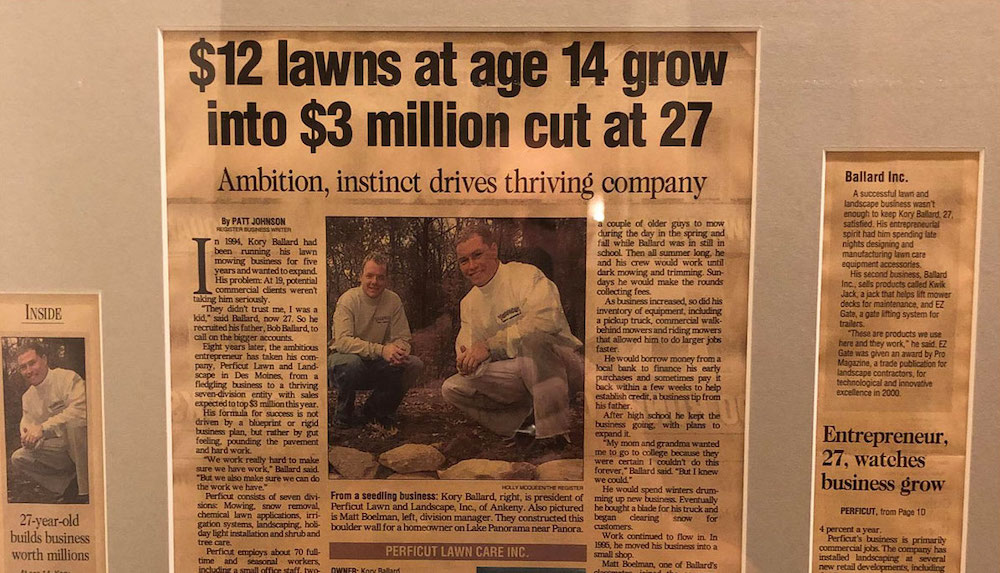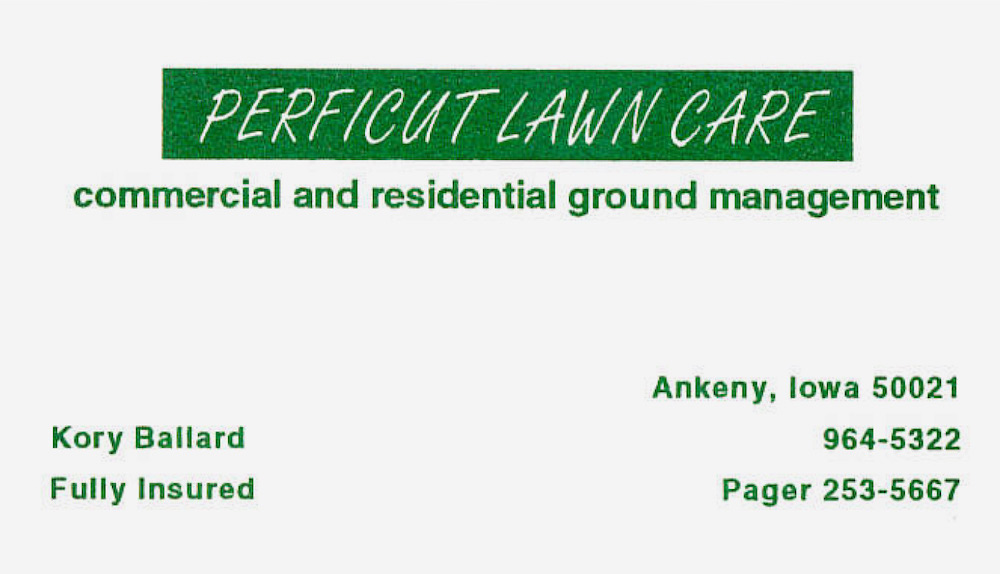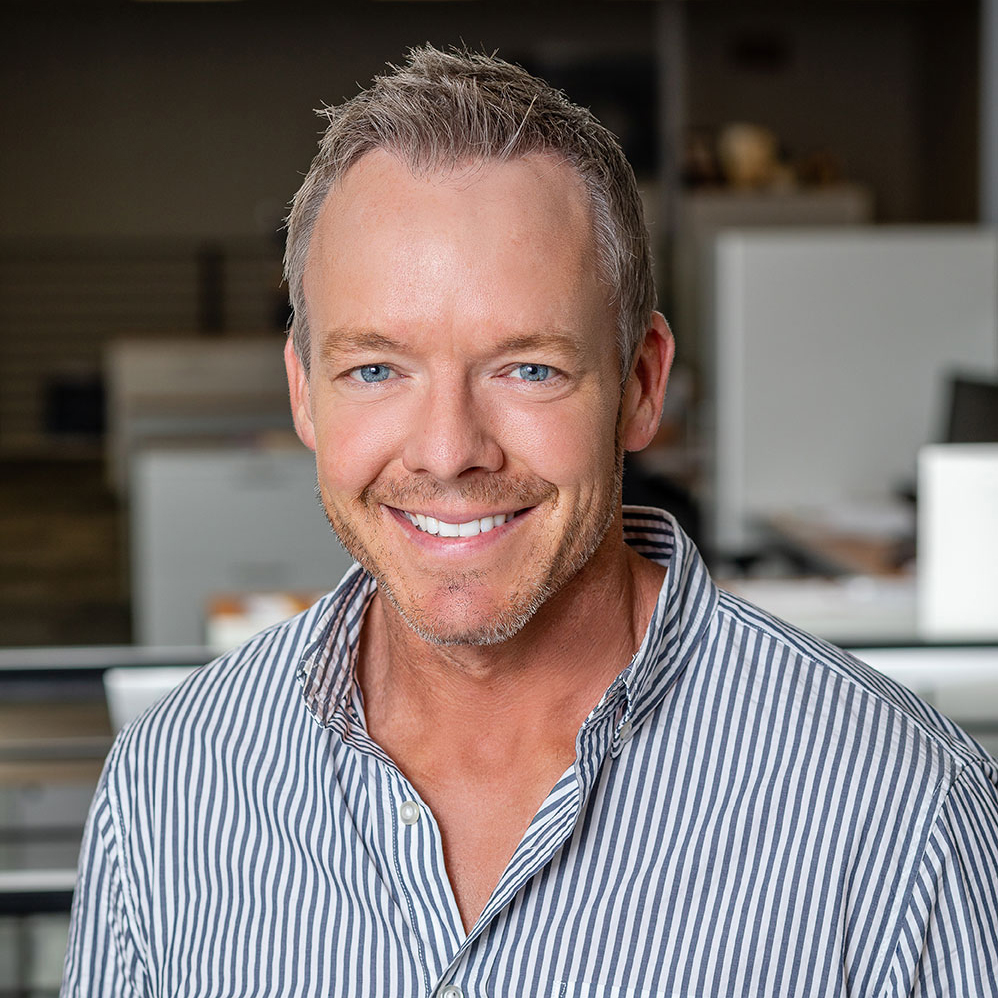Over and over again, customers and colleagues tell us that Perficut is simply a different type of company. Our business is fueled by a progressive spirit and managed with a level of passion that is uncommon in our industry. That’s not only because of our company values but also because of the leaders behind Perficut.
Learn how we’ve done it with Perficut’s President and CEO Matt Boelman as he shares insights into how the company has grown, what he’s learned along the way, where the industry is headed, and more.
Q: How has Perficut changed over the years? How have those changes impacted how you lead your team?
A: I think in all honesty we’ve just grown up. When Kory [Ballard] and I started we were 18-year-old kids. When you start something that young, you’re very green. You don’t have a lot of good business wisdom, dealings with people professionally, or management experience. At least we didn’t. But that was something that made us unique as well.
We also weren’t seasoned on having any business risk. We didn’t understand debt. We didn’t understand banking. We didn’t understand profit loss statements. We didn’t understand balance sheets. We didn’t understand any of that. That provided a benefit for us because risk never entered into the equation of starting or growing the business. At the time we had a pretty simple formula — we just wanted to win business.
In the early years we were willing to take risks that I would look at a lot differently now because we didn’t weigh the downside. Growing business in the Ankeny and Des Moines markets at the time was just the perfect storm for that type of mentality because the area was growing as well. We were laser focused on approaching people relentlessly and it made us a very dangerous company for competitors at the time. We were risk adverse, we were young, and we had a go-getter mentality. Plus, the incredible environment of Ankeny allowed us to flourish.
The business changed over time. As we grew up mentally, we started hiring people that were better at things than we were. From accounting to mechanics to billing, we brought on people who complemented our style and supported us in growing the business. And with those changes we were able to embrace that we were responsible for so much more than our own livelihoods.
We learned that as a business owner you have to start working differently when that’s the case. You have to learn management. You have to learn how to talk to people in a way you maybe haven’t been trained. And you’re forced to listen.
Honestly, the last two years have been probably a couple of the greatest years we’ve had. That doesn’t mean we’re growing or making more money. It just means that we have a team in place that fit the core values and goals of what we wanted to be but couldn’t achieve before growing up.
Q: What advice do you have for building a company like Perficut?
A: Listen. Listening to your clients is one thing, making sure you have their best interest in mind. But really listen to your employees. I have found in doing this they will tell you everything you need to make a good decision. It can be hard at times when you don’t have the experience or maturity to recognize the importance of listening, but it’s so important to company culture and the success of the business.
Q: What’s something you’ve learned that you wish you could tell your younger self?
A: I don’t know if I would do anything differently. I’m trying to lead the company differently today than when I was 18 years old. We’re trying to make smart decisions and make sure all aspects of our business are protected, including my and Kory’s original vision.
But I guarantee we couldn’t have created the brand the company has grown into without that risk-adverse killer instinct we had when we were 18 years old and had a team of young gunners.


Q: What’s been the most challenging part of growing a team?
A: The individuals we hired in the beginning were perfect for the environment and added to the comradery of winning. We also had to complement them with people who were smart and intuitive and really good at processes or managing people differently than we were.
That’s now transpired to the next stage of our business. We have it set up now where we have a good platform and are trying to put the right people on the bus to get us to where we need to go. We had to realize that what got us to where we are now isn’t what will get us where we’re going.
It’s tough because sometimes you have people who aren’t in the right seats and you try to find spots that work. Sometimes it doesn’t though.
Q: What advice do you have for someone looking to start out on their own? Whether it’s a landscaping company or not.
A: I could say things like make sure you know your numbers, but I don’t know if that’s the best advice. I did a panel a few years ago and that same question was asked, and I still mean what I said then: just hone your listening skills. Everything you need to know to run a business, in all honesty, can probably be told to you by the others around you. If your employees are unhappy, have ideas, or have different ways of doing something and you choose to talk before you listen, then you’re in trouble. Your clients will tell you everything you need if you listen and if you’re a better listener than your competitor then you have a pretty good chance of being successful.
Q: Where do you think the industry is headed in the next 5 to 10 years? Where is Perficut putting its energy?
A: I think the industry is going to be segmented. I think there will be the big players in the industry gobbling up national market share through national bid processes. As companies get bigger, they’re consolidating vendor platforms and working with one vendor for all of their sites. We’ve been seeing this for the last 10 years.
I see things continuing to get more segmented in that the big companies will be able to adapt to that environment, but the smaller players are going to struggle. For smaller companies, they’re going to be in a position where some of their only strategic advantages will be incredible customer service at a local level that national companies can’t provide. It also leaves mid-size companies in some risk.
At Perficut we’re working in those platforms and working across regions or across the state with our clients who have multiple sites. I see that continuing into our expansion. I see us acquiring what I would consider like-minded businesses that have the same core values and can add to our service portfolio as we seek out and target those types of companies. And I see the industry top players doing the same. It’s hard to find people you can organically grow with and scale, but we plan to be a part of that over the next five, 10 and 20 years.

